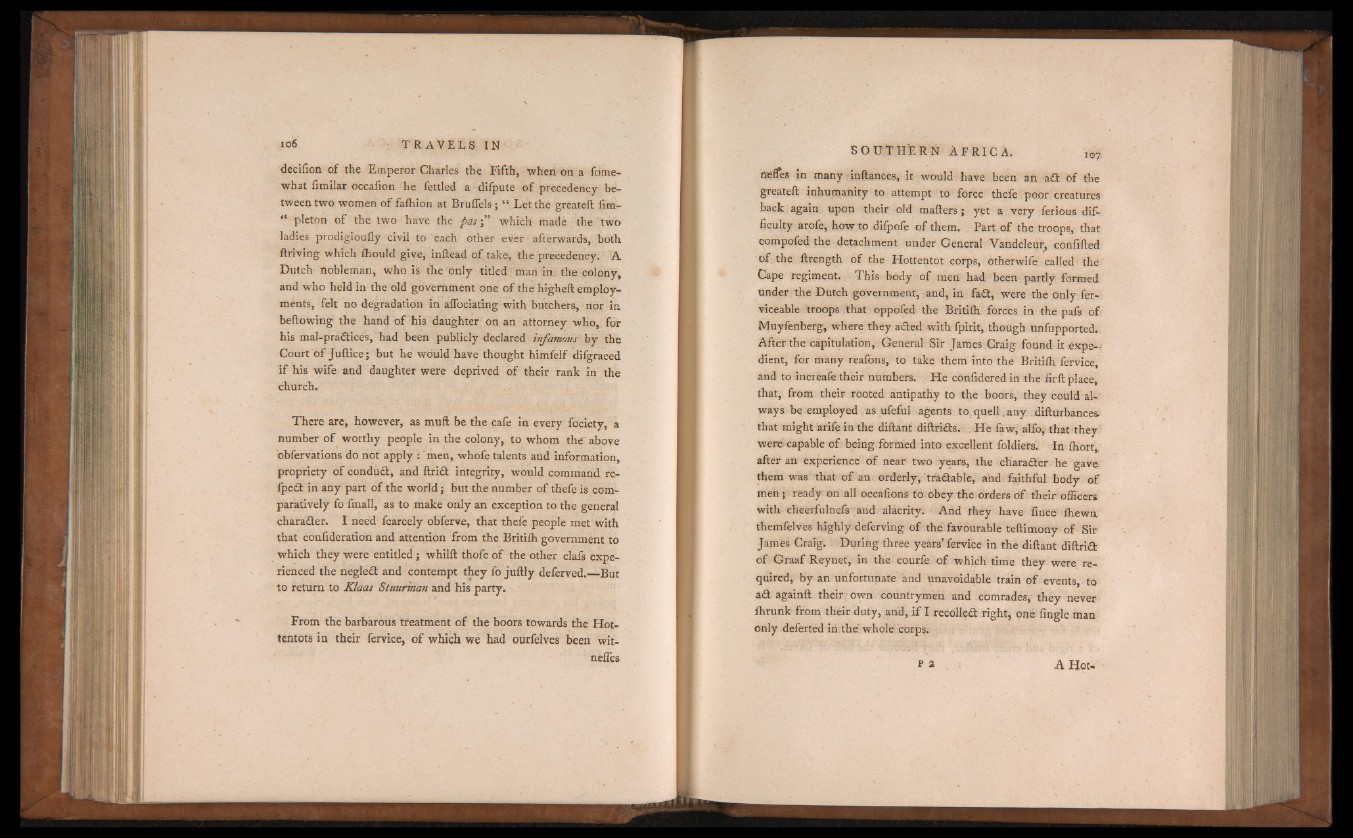
io 6
decifion of the Emperor Charles the Fifth, when on a fome-
what fimilar occafion he fettled a difpute of precedency between
two women of faihion at Brufiels; “ Let the greateil fim-
“ pleton of the two have the p a s which made the two
ladies prodigiouily civil to each other ever afterwards, both
ftriving which ihould give, inftead of take, the precedency. A
Dutch nobleman, who is the only titled man in the colony,
and who held in the old government one of the higheft employments,
felt no degradation in affociating with butchers, nor in
bellowing the hand of his daughter on an attorney who, for
his mal-pradices, had been publicly declared infamous by the
Court of Juftice; but he would have thought himfelf difgraced
if his wife and daughter were deprived of their rank in the
church.
There are, however, as muft be the cafe in every fociety, a
number of worthy people in the colony, to whom the above
obfervations do not apply : men, whofe talents and information,
propriety of conduit, and ftriit integrity, would command re-
lped in any part of the world; but the number of thefe is comparatively
io fmall, as to make only an exception to the general
charaiter. I need fcarcely obferve, that thefe people met with
that confideration and attention from the Britiih government to
which they were entitled; whilft thofe of the other clafs experienced
the negleit and contempt they fo juftly deferved. But
to return to Klaas Stuurman and his party.
From the barbarous treatment of the boors towards the Hottentots
in their fervice, of which we had ourfelves been witnefles
ttefles in many inftances, it would have been an ail of the
greateft inhumanity to attempt to force thefe poor creatures
back again upon their old mailers ; yet a very ferious difficulty
arofe, how to dilpofe of them. Part of the troops, that
compofed the detachment under General Vandeleur, confided
of. the llrength of the Hottentot corps, otherwife called the
Cape regiment. This body of men had been partly formed
under the Dutch government, and, in fad, were the only fer-
viceable troops that oppofed the Britiih forces in the pafs of
Muyfenberg, where they aded with fpirit, though unfupported.
After the capitulation, General Sir James Craig found it expedient,
for many reafons, to take them into the Britiih fervice
and to incteafe their numbers. He confidered in the firil place,
that, from their rooted antipathy to the boors, they could always
be employed as ufeful agents to quell any diflurbances
that might arife in the diilant diftri&s. He faw, alfo; that they
were capable of being formed into excellent foldiers. In Ihort,
after an experience of near two years, the character he gave
them was that of an orderly, tradable, and faithful body of
men; ready on all occafions to obey the orders of their officers
with cheerfulnefs and alacrity. And they have fince Ihewa
themfelves highly deferving of the favourable teilimony of Sir
James Craig. During three years’ fervice in the diilant diftrid
of Graaf Reynet, in the courfe of which time they were required,
by an unfortunate and unavoidable train of events, to
ad againft their own countrymen and comrades, they never
ihrunk from their duty, and, if I recoiled right, one fingle man
only deferted in the whole corps;